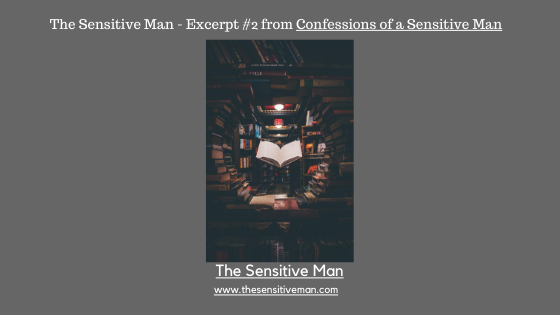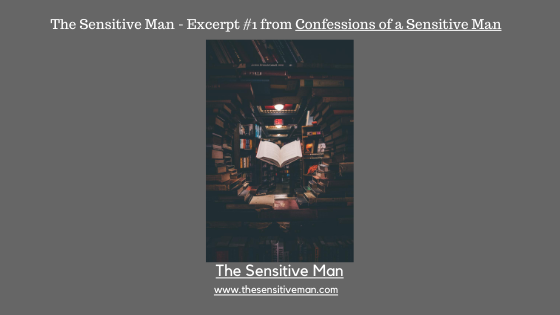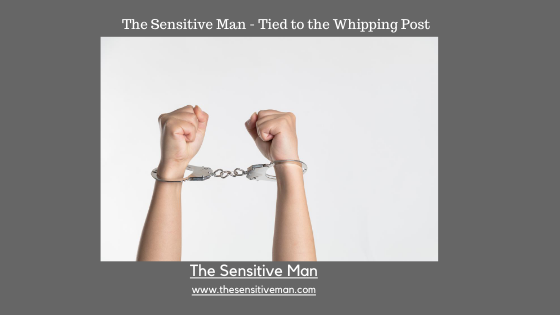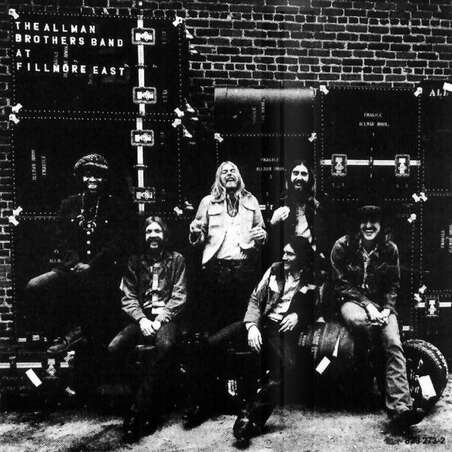|
A Blog about Sensory Processing Sensitivity from the Worldview of a High Sensing Male
For the next eight to ten weeks, I am going to be providing excerpts from my upcoming book, Confessions of a Sensitive Man, An Unconditional Defense of Sensitive Men. I am anticipating a release date on Amazon, et.al., sometime in late September. Please enjoy this free preview of the book. From Chapter 2 – What Defines a Sensitive Man? : Embracing our Eccentricities We are a peculiar bunch, we HSPs. Some might even say we are a bit eccentric. This is especially true for Highly Sensitive Males. We HSMs are a small percentage of a small percentage of the human population, and we don’t meet, for the most part, the stereotypes of the modern western male. But … eccentric? Dictionary.com[i] defines eccentric as adj.: deviating from the recognized or customary character, practice, etc., irregular erratic, peculiar, odd. Noun: A person who has an unusual, peculiar, or odd personality, set of beliefs, or behavior patterns. The word has its roots from the (Medieval Latin) eccentricus and from the Greek ekkentr(os), which is to be out of the center. It is used in geometry and astronomy to describe something that is out of center or not concentric. In other words, something that lies on the outside. Eccentricity is often tolerated or even revered in those who are very wealthy or are celebrities. Their odd ways and behaviors can become fashionable among the masses, and are sometimes talked about as if these eccentrics are geniuses or acceptable outliers. In that regard, eccentricity can be a favorable quality, making one a leader or a trendsetter by walking a different path. But what makes us HSMs seem eccentric to others? Is it the emotional aspects of our personalities, our broad accepting worldview, or our internal conflicts about our masculinity? What about our aversion to overstimulation, the hermitic deep processing of our experiences, or the masculine/feminine polarity that many HSM men wrestle with? Are we too moody, too quiet, too sensitive to criticism, too introverted? We can be too empathetic, too observational, and too persnickety to environmental changes, but are we that different? Do we appear to the outside world to be outliers, strange, hard to figure out, and hard to live with? In some cases, do people want to throw up their hands and give up on us because we are too much work? But does that make us eccentric? Maybe. Eccentricity, also known as quirkiness, is not necessarily a maladaptive behavior. But, yes, we can be a bit off-center from mainstream personalities and behaviors. Many HSPs have intellectual giftedness and curiosity, and a propensity for original and creative thought. We see things differently via our peculiar and unique perceptive lens. But are we eccentric? The psychologist David Meeks states that eccentrics are less prone to mental illness than the general population.[ii] Doesn’t that seem odd? Perhaps if you look at some of the other defining characteristics of eccentrics, it makes more sense. Eccentrics have an enduring propensity for non-conformity, are creative (sound familiar?), have a strongly motivated curiosity (and I would add observational skills), an enduring sense of differentness, and embrace this wonderful idealism that drives them to want to make the world a better place to live. Besides, eccentrics are intelligent, outspoken, and have a quirky, mischievous sense of humor. With that battery of personality characteristics, it seems eccentrics are well armed for survival in uncertain times, does it not? Because we HSPs have increased awareness and sensitivity to our environment and we process very deeply and thoughtfully, it makes sense that to the majority of the non-HSP world we may seem to be a bit different. And what about our tendency toward overwhelm—how we can so easily be affected by others’ moods or emotions, then retreat to our voluntary isolation, our emotional caves. We are prone to unrealistic perfectionism at times, which sometimes causes us to live out of sync with our environment and the people around us. So with our enhanced qualities of sensory detail, nuanced expression, and meaning, our emotional awareness, which leads us to greater empathy and an expression of creativity, can we not be seen as eccentric? Think about this: the following people have been associated with the quality of high sensitivity or Sensory Processing Sensitivity:[iii] Woody Allen, Steve Martin, Orson Welles, Edgar Allan Poe, Salvador Dali, Picasso, Stephen Spielberg, George Lucas, Nicole Kidman, Katherine Hepburn, John Lennon, Elton John, Alanis Morissette, Neil Young, and Dolly Parton. And my personal favorite, Robin Williams. That’s a pretty quirky bunch, wouldn’t you say? Eccentric … well, yes, in a lot of ways. But they turned that eccentricity into beautiful art. They are beloved by millions. And perhaps their sensitivity played heavily into their creative process. For some, it might have been a way to mask and protect themselves; for others, it might have been a way to reach out and find common ground with the world. But for all of them, they risked being called eccentric to rise above criticism and be themselves. So, if we HSPs are that quirky, strange, or weird, what do we do about it? Is some eccentricity good for HSPs? I mean, is eccentricity really simply being different? But wait, we are different. We already know that. Instead, how do we embrace our eccentricity, so we can stop worrying about what others think about us? Should we promote and socialize our uniqueness? As people learn more about our nature, our personality, our SPS secret, maybe will they better understand us, and with that, begin to normalize us. Here are some things to think about concerning our “eccentricity”:
[i] https://www.dictionary.com/browse/eccentric [ii] http://psychology.wikia.com/wiki/Eccentric_behavior [iii] http://www.genconnect.com/albert-einstein-nicole-kidman-jim-hallowes-list-of-famous-highly-sensitive-people/
0 Comments
A Blog about Sensory Processing Sensitivity from the Worldview of a High Sensing Male
For the next eight to ten weeks, I am going to be providing excerpts from my upcoming book, Confessions of a Sensitive Man, An Unconditional Defense of Sensitive Men. I am anticipating a release date on Amazon, et.al., sometime in late September. Please enjoy this free preview of the book. From Chapter 1 - What … me, Sensitive? : Growing up, I knew I was different. I was different from all the other boys in the neighborhood. I was taller, skinnier, and more sensitive. Yeah, sensitive. At the time I didn’t know what sensitivity was all about. Growing up in South Carolina in the fifties and sixties, the profile for boys was rough-and-tumble, getting dirty, getting into fights, and letting all criticism roll right off your back. The last thing I wanted to be was a sensitive boy. Back then, every boy was subject to the code: boys were expected to be little men. They had to be tough, unemotional, and above all, not like little girls. It was easy to fail this code if you were a sensitive type. I saw things differently; I experienced life through a different lens and filter than most boys. It was harder for me to “just get over” life’s bumps and bruises. I took them to heart and ruminated ferociously the mistakes I made, whether real or imagined. I felt alone most of the time, the only boy in a family of girls. My father was distant and somewhat disaffected. He was an HSP (a highly sensitive person) himself but didn’t know it. I don’t know whether he was trying to whip me into code or if he knew it would be easier for me if I simply conformed. Eventually, I got the message and created a self-image through sports. I was a fairly good athlete, rangy and quick, but not with supreme athletic ability. It was enough to make me slightly above average. This went over well with my male friends. I knew this because I was generally picked in the top five for things like kickball, softball, and especially basketball. Being tall made it easy not to be missed for early selection. You can’t teach tall. I loved football but hated the contact. My dad played football in high school. He was voted most athletic in the school, so there was some pressure for me to be athletic, although I admit, it wasn’t a fanatical expectation. I put more pressure on myself than anyone. This was a proving ground. This was a way I could prove I was a man. Before high school, there were Dixie Youth Baseball and Pop Warner football. I never was talented enough or motivated enough to play baseball. That was a miss on my part. Wearing your baseball cap on game day to school was a sign that you had arrived as a little man. I tried out later for Pop Warner, and the coaches pretty much sealed my fate. They must have been ex-Marine Corp drill instructors because they wore our butts out in the first practice. Kids were falling out all over the field. I was one of them. I was beyond sore. The pain was excruciating, and I knew that football was probably not for me. Back then, there was no organized basketball for kids, so I just played around the neighborhood. We developed our own neighborhood teams and played other kids in the surrounding neighborhoods. Games could last all night, and best of all, there were no coaches to screw it up for us. I didn’t mind contact, and that was a good thing as I was generally picked to play center. As my skills improved, respect began to come. I was on the eighth-grade team for a brief time but hated the coach. He yelled constantly; sometimes, I thought, simply to yell. I didn’t like that. He was an ass. I quit the team, even as the varsity coach, a neighbor, was talking to me about moving me up to the high school team. This is a place where being sensitive really hurt me. I got nervous about the “promotion” to varsity and was overwhelmed with fear. I quit before my basketball career could begin, succumbing to my fears. This continued throughout high school. I had trouble with relationships. On the one hand, I was a pretty shy guy in the public eye, but quite gregarious around close friends. It was difficult for me to ask girls out on dates. I was like most teenage boys, pretty awkward with talking to the opposite sex. Not like the more popular boys who seemed to have a personality trait that made them calm and debonair. I assumed it was a lack of masculine magnetism on my part. Again, another place I failed to meet the boy/man code. Of course, it never helped my cause to always be in pursuit of girls who had no interest in me. I got used to dealing with a lot of emotional highs and lows, the angst of adolescence. For the most part, I dealt with it alone. The feelings I had didn’t seem manly enough to discuss with my parents or friends. I learned to be my own best friend. As I got into the upper grades of high school, I started underachieving. I was an honor student up until my junior year of high school when I met my first crush, a senior girl, in yearbook staff. She was different. This was the early seventies, and by all definitions she was a hippie chick. I was from a conservative and devoutly Christian family. Our meeting was like the meeting of matter and anti-matter, and it changed my world. Everything I had learned to that point, I never questioned. I may not have liked it, but I was not positioned to oppose the values that I had been brought up with. She opened my mind to a new way of looking at things, and I began my long journey to accepting and embracing who I was. A Blog about Sensory Processing Sensitivity from the Worldview of a High Sensing Male
Years ago, a young Gregg Allman penned a song, one of the best blues tunes of that era, about a man being abused and used by an amour. The song was aptly called Whipping Post. He cried out in the song, that the anguish and pain felt like being tied to a whipping post. The gritty blues song belted out with his gravelly, bluesy voice and masterfully played by his fellow bandmates, epitomized the pain of emotion gone wrong. HSP men, often easygoing, gentle men, sometimes find themselves on the brunt end of emotional flak from insensitive men and women. The criticisms and put-downs are often related to our sensitive nature, which is in sharp contrast to theirs. Perhaps, we are criticized as well for our insights and intuitions or because of the ups and downs of our emotional makeup. It sometimes feels like we are tied to an emotional whipping post to be flogged and humiliated in public displays of pseudo dominance. Why all the hate? Lesser men often attack those they think are weaker. This bullying is nothing more than internalized insecurity, probably from an early childhood background of abuse and neglect. They are wounded, you are not. You, as an HSP, express the things that they repress -the emotion, the feelings, the empathy that they lack, but secretly crave. They resent you for your ability to express these things that make us human – the ability to care, to nurture, and be supportive. Even some women get into this game, often because they have unrealistic fantasies about men as superheroes, saviors and warriors, white knights to save them from their core insecurities. This, again, brought to them by poor socialization and self-esteem learned from their parents. These women put you down because you don’t live up to their projection of what a man is supposed to be. They chain you to the whipping post and try to humiliate you—another example of insecurity. Don’t internalize the negativity. Whatever you do, don’t internalize this negativity. Walk away from this crap. Confrontation does not lead to resolution. Don’t take the comments to heart. They are not a projection of you, but rather the “other” projecting on you their fears and insecurities. This is a life lesson for all HSPs, don’t let your sensitive nature absorb the toxicity of others. Let go of the attacks. So what to do? Unleash yourself from the shackles of the whipping post. Don’t be a target for these weak people. In a real power move on your part – walk away. You hold the power of the chains that bind you. Keep your head up, move on. Your strength lies within you. You are, in the end, the better man for disengaging. Remember, you tie yourself to the whipping post by any inaction on your part. The whipping post, by its very definition, is a tool for humiliation and pain. Never let anyone denigrate you for who you are and what you are. We, as HSPs, are done with this. The tide is turning. |
AuthorBill Allen currently lives in Bend, Oregon. He is a certified hypnotist and brain training coach at BrainPilots.com. He believes that male sensitivity is not so rare, but it can be confounding for most males living in a culture of masculine insensitivity which teaches boys and men to disconnect from their feelings and emotions. His intent is to use this blog to chronicle his personal journey and share with others. Archives
July 2024
Categories
All
|





 RSS Feed
RSS Feed
